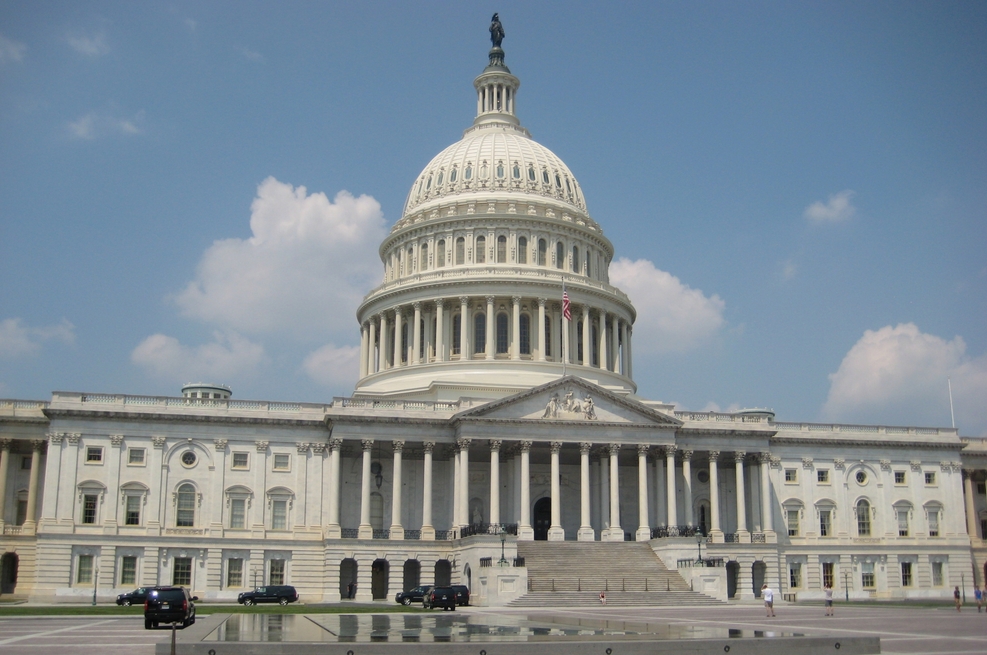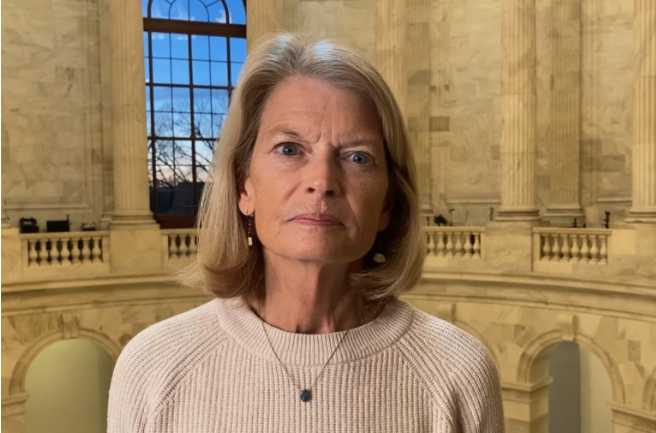Highlights from the Commerce, Justice, and Science (CJS) Bill
Fisheries Data Collections, Surveys, and Assessments
One of the best tools we have to help Alaska’s fishing industry recover is to collect the best data possible so that we have a complete picture on stocks. Murkowski advocated for additional funding and helped secure a $15 million increase from FY 2024, including language requiring the National Oceanic and Atmospheric Administration (NOAA) to “conduct no fewer than six surveys for Alaska bottom trawl surveys and cooperative research.” She also included report language directing the National Marine Fisheries Service (NMFS) to provide technical guidance for Councils to incorporate climate considerations in the development of fisheries regulations, implement climate-ready management actions, maintain and restore fish stocks, and support resilient fishing communities.
Senator Murkowski included report language that recognizes how critical reducing, preventing, and researching marine debris is to the goal of protecting and preserving the integrity of our marine ecosystems and the communities and wildlife who depend on them. The language recommends for FY 2025 and beyond that the Marine Debris Program be listed as a separate, specific line item within the President’s yearly budget request and within NOAA’s yearly budget justifications.
The Senator also prioritized increasing the budget for the Bycatch Reduction Engineering Program, which will provide industry the tools to develop bycatch reduction technologies.
National Weather Service
As Alaska grapples with natural hazards and climate change, it is important for the National Weather Service (NWS) to have access to the latest tools and technology. Murkowski included report language directing $6 million to the National Tsunami Hazards Mitigation Program, as well as language directing the NWS to maintain, upgrade, and replace the Automated Surface Observing System (ASOS), which rural and remote communities depend for reliable air service.
Public Safety, Supporting Victims, and Addressing the MMIP Crisis
Since the passage of the Violence Against Women Act of 2022, Senator Murkowski has advocated for increased funding and new funding for programs that work to address the crisis that Alaska faces when it comes to violence against women. Murkowski secured historic levels of funding for VAWA programs and increased funding for the Sexual Assault Services Program and Transitional Housing Assistance and included report language which highlighted the importance of continued funding for the Alaska Children’s Advocacy Center Expansion Initiative.
Senator Murkowski has been actively working to address the stability of the Crime Victims Fund. The CJS bill made available $1.9 billion through the CVF for victim services, which is critical to ensure that victim services do not see devastating cuts in FY25.
The Senator secured $5 million for a new Special Initiative that works to address the intersection of MMIP and domestic violence, sexual assault, stalking and human trafficking in Tribal communities.
Senator Murkowski also got an increase in the Grants to State and Tribal Courts to Implement Protection Order Pilot Programs, funding which she is intent on directing towards the Alaska Tribal Public Safety Empowerment pilot program.
In addition to programmatic funding to help Alaskans, Murkowski was able to secure investments specific to 14 Alaska communities, projects that have been requested and prioritized by local governments and organizations in this bill:
- Statewide: $300,000 to promote climate resilience in coastal communities by improving weather tracking along Alaska’s northern and western coasts. This funding will help local communities better measure climate change impacts and improve methods for detecting harmful algae blooms caused by warming ocean temperatures.
- Statewide: $1.91 million for the Alaska Department of Fish and Game to gather data on harbor porpoises to assess management changes and provide information on the species’ conservation status.
- Statewide: $2 million to advance the Alaska Fisheries Development Foundation’s Seafood Industry Modernization Initiative, focusing on research, product development, market access, skilled trades training, and applied innovation.
- Statewide: $1 million to support the Tribal Domestic Violence Resource Center in Alaska, providing culturally specific training and technical assistance for victim/survivor-centered and trauma-informed programs.
- Statewide: $3 million for the Alaska Seafood Marketing Institute (ASMI) to promote U.S. wild-caught Alaska seafood products to retain and expand market share among U.S. consumers.
- Anchorage: $150,000 to train additional forensic investigators and purchase investigative tools for the Internet Crimes Against Children Taskforce.
- Anchorage: $676,000 to complete the Anchorage Police Department’s agency-wide computer and technology upgrade, replacing outdated computers and enhancing the Department’s vehicle fleet.
- Anchorage: $27,000 to train youth members of the Anchorage Youth Court, a diversionary program for youth in grades 7 through 12 accused of breaking the law.
- Statewide: $500,000 for the Bering Sea Fishermen’s Association to provide technical expertise to tribal organizations to minimize non-Chinook (chum) salmon bycatch in coordination with the National Marine Fisheries Service.
- Statewide: $3.5 million for in-season genetic analysis of chum salmon bycatch in the Bering Sea Pollock Fishery, enhancing understanding and efforts to reduce chum salmon bycatch and support Western Alaska fisheries.
- Statewide: $2.5 million for the North Pacific Research Board to study how environmental conditions influence species of commercial and ecological importance in the Northern Bering Sea, informing fisheries management and community impacts.
- Prince William Sound: $355,000 for the Prince William Sound Science Center to develop and deploy updated instrumented tethered profiling robots for climate and ecosystem monitoring in Prince William Sound.
- Statewide: $1.99 million for the University of Alaska to develop drone-borne maritime lidar technology to improve salmon counting accuracy critical to sustainable fishing and commercial success in Alaska’s seafood industry.
- Valdez: $6.1 million to replace obsolete emergency services communication towers and equipment, ensuring city-wide coverage and connection to the dispatch center.
Highlights from the State and Foreign Operations (SFOPS) Bill
Investing in the Arctic
Murkowski is a leading voice and expert on Arctic policy, both in the U.S. and abroad. In the FY 2025 SFOPS bill, she secured funding for the Office of the Ambassador-at-Large for Arctic Affairs at the State Department, the Standing Committee of Parliamentarians of the Arctic Region, and the Arctic Council—all of which will help increase the United States’ engagement in the region and our standing on the international stage.
International Fishing
Working closely with bordering nations is critical to managing stocks and avoiding overfishing. Murkowski insisted on full funding for the Pacific Salmon Commission and increased funding for the International Pacific Halibut Commission to continue providing essential stock assessment surveys. She secured report language directing relevant cabinet Secretaries to identify ways to improve enforcement capabilities for sanctions placed on Russian seafood and fish. Senator Murkowski also secured $50 million for ocean plastic pollution cleanup.
Minerals
Murkowski secured report language directing the Secretary of State to explain how they are prioritizing U.S-based companies and projects in their ongoing critical mineral supply chain activities and the extent to which support for international projects are being used to mitigate the impact of domestic mining restrictions.
[content id=”79272″]








